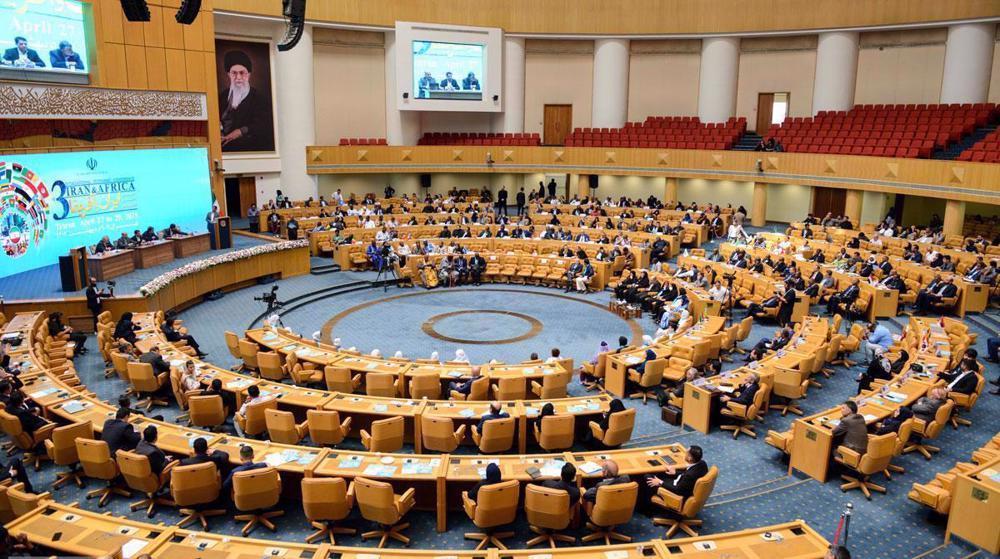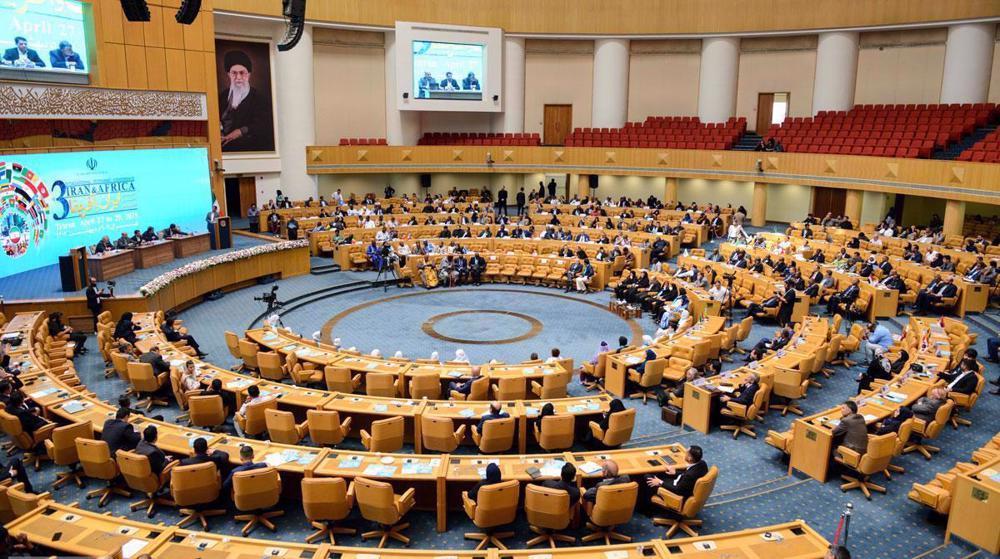Africa-Press – Zambia. Iran is hosting more than 700 traders from 38 African nations at the Third Iran-Africa Economic Cooperation Conference in Tehran and Isfahan with the aim of bolstering relations.
Four specialized panels are held at the ministerial level in four areas of petrochemicals, mineral and metal industries, agriculture and food industries, and health and medicine.
On Monday, the delegates visited the Iran Expo, the largest trade event in the country before attending a specialized panel and heading to Isfahan Tuesday for two days of specialized meetings and visits to more than 10 industrial centers and factories in the province.
Since the Islamic Revolution in 1979, Africa is one of the regions that has gained a special place in Iran’s foreign policy where political, cultural, and economic relations with African countries have been among the priorities.
In fact, the Islamic Revolution of Iran, due to its spirit of freedom-seeking, independence and resistance against colonialism, quickly attracted the attention of the African people and gained a lofty place among African nations.
Hence, the level of cooperation with African countries has increased significantly, and political relations are currently established with all countries of the continent.
Economic cooperation between Iran and Africa is a turning point for the systematic development of Iran’s cooperation with the continent. At the same time, the African continent is a unique opportunity for developing countries to trade with.
The African continent is a constellation of developing countries with varying degrees of progress and development. Apart from its impressive political and cultural capacities, the continent is rich in minerals, agricultural resources, abundant economic and social capacities, a vast and untapped market and a cheap labor force.
Africa has vast reserves of oil, gas and other natural minerals such as cobalt, gold and diamonds. It is also rich in essential raw materials for industrial production such as palm oil, cocoa, tea, coffee and vanilla.
As a result, the vast continent is of serious interest to Western economic powers and the target of medium and long-term plans of middle economic powers such as China, India, Brazil and South Africa.
In the same vein, the Islamic Republic of Iran has based its foreign policy on expanding relations with African countries.
The African continent is strongly oriented towards economic growth and development, and is rapidly moving in this direction, offering a fertile ground for productive capacities of the Iranian economy.
In other words, the goods and services that Iran can offer to African countries have a higher competitive advantage compared to Western countries and even some Eastern competitors.
Iran can help African countries with their need to import goods, services, and skilled workers to overcome their historical backwardness. It can also play a role in sustainable development and achieving shared prosperity with African countries through targeted investments in critical infrastructure and strategic partnerships.
The African continent, on the other hand, can provide countless opportunities for Iran in the production sector, given its inexhaustible primary raw materials that can meet a large part of Iran’s needs in the industrial sector.
For example, Iran has a long-held project in Guinea to secure bauxite supplies as the country ramps up its aluminum production. It needs bauxite because it doesn’t have enough in Iran and to reach its goal, the country should buy bauxite, including from Africa.
Meanwhile, the African continent has a population of over one billion people which is projected to hit 2.5 billion by 2050, making it a very good market for exports of Iranian goods and services.
Many African countries have high economic growth rates, which provide opportunities for exports of goods, services, and foreign investment. Expanding economic interactions with the continent can increase countries’ share of new markets.
The East African region, especially Kenya and Tanzania, is of great geographical and strategic importance to Iran. It not only serves as an economic gateway for exports and imports, but also serves as a strategic pole for expanding Iran’s clout in other parts of Africa.

Currently, Iran’s trade with Africa worth about $800 million accounts for only 3 percent of the country’s exports and 1 percent of its imports. The immediate plan is to hit $10 billion in annual exchange of goods, services, technical knowledge and value chains.
Iran has various export advantages for Africa. It can meet the import needs of the continent at a much lower cost than Western countries and sometimes China. Existing sanctions on Iran are an opportunity for African countries to get incentives and favorable terms in the form of payment methods.
Therefore, both in terms of cost and payment terms, Iran holds advantages to Africans that can both diversify Iran’s export portfolio and provide significant foreign exchange resources for the country.
Iran can play a role in sustainable development and achieving shared prosperity with African countries through targeted investments in critical infrastructure and strategic partnerships.
The participation of 17 ministers, heads of chambers of commerce, deputy ministers, and about 400 businessmen from African countries in the third Iran-Africa summit indicates that relations between Iran and Africa are gradually warming up and both sides are motivated better than ever to engage in serious cooperation.
The summit, however, is just the beginning of a long journey, which requires charting out a new path centered on smart infrastructure, active trade diplomacy, and turning sanctions into opportunities with creativity.
For More News And Analysis About Zambia Follow Africa-Press







